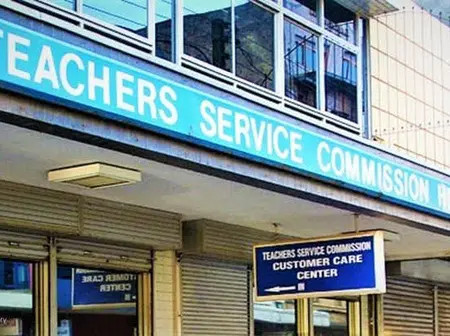The Kenya National Examinations Council (KNEC) has announced significant changes in the administration of this year’s national examinations, specifically the Kenya Junior School Education Assessment (KJSEA) and the Kenya Certificate of Secondary Education (KCSE).
In a circular released by the Teachers Service Commission (TSC), it was confirmed that only secondary school teachers will be engaged as supervisors for both sets of examinations.
The decision marks a major policy shift in the management of assessments, particularly for junior secondary school learners. In past years, teachers from primary and junior schools would often play supervisory roles during national assessments. However, KNEC has now opted to rely exclusively on secondary school teachers for the supervision process.
According to the circular, this move is aimed at tightening security and ensuring credibility in the examination process. KNEC noted that primary and junior school teachers may have vested interests in the outcomes of KJSEA since they directly teach and mentor the same candidates sitting for the assessment.
By excluding them from supervision, the council hopes to eliminate potential conflicts of interest and minimize loopholes that could lead to exam malpractice.
The issue of exam cheating has remained a pressing concern for Kenya’s education system. In recent years, instances of exam irregularities have been reported in different parts of the country, raising questions about the integrity of national assessments.
KNEC, therefore, views this measure as part of its broader efforts to safeguard the credibility of exams and restore public confidence in the evaluation system. While primary and junior school teachers have been excluded from supervision duties, they will not be left out entirely.
KNEC has revealed plans to engage them in the marking process of the KJSEA assessments. Over the past few weeks, hundreds of junior school teachers have undergone specialized training organized by KNEC, equipping them with the necessary skills to serve as official examiners. Upon completion of the training, the teachers were accredited as approved markers for this year’s junior school assessments.
This arrangement reflects KNEC’s strategy to balance impartiality with expertise. While supervision will be strictly handled by secondary school teachers to avoid conflicts of interest, junior school teachers, being familiar with the curriculum and learning outcomes, will play a critical role in evaluating learners’ scripts.
Education stakeholders have welcomed the move, though with mixed reactions. Some argue that excluding primary and junior school teachers from supervision may appear to sideline their role in the education system. Others, however, believe the decision is timely and necessary to strengthen examination integrity.
As the country prepares for the busy national examinations season, the new measures highlight the government’s determination to safeguard academic standards and ensure fairness for all learners. Both the KJSEA and KCSE are set to begin later this term, with preparations already underway in schools across the country.

Leave a Reply